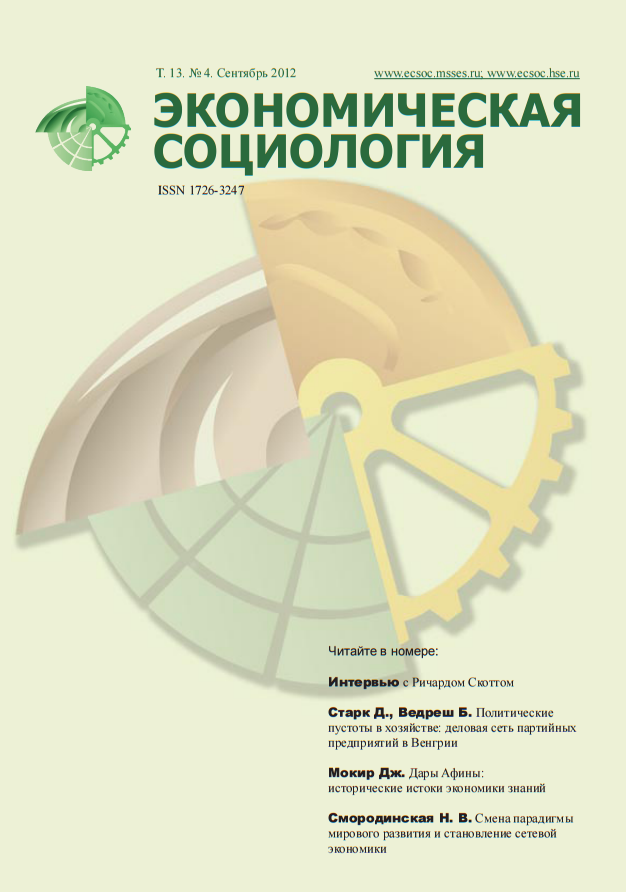Systematic Transformation in Germany: Positive Expectations and Hard Reality
Abstract
Based on German sociological literature, authors review peculiarities of the systemic transformation and modernization of the new federal lands after reunification of Germany. They demonstrate key problems faced by the German government, business, and financial circles. Main approaches developed by German economic sociologists and depicting possible future scenarios of the Eastern Germany are presented. These approaches stress the importance of social and economic analysis and consider the transformation as a continuous cumulative process. Authors present economic perspectives of the new federal lands in the times of so-called double fracture, describe strategies of preservation (and increasing) of population of the former German Democratic Republic, and discuss a problem of decreasing (and shrinking) of cities. It is proved that the continuous social development of the Eastern Germany requires fundamental changes in the life of all German citizens.













